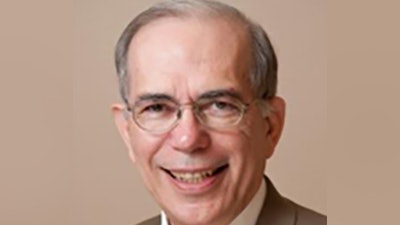The post-pandemic decline in U.S. college enrollment is a lingering concern for both educators and policy makers. College and university student enrollment is down for the third straight year, 7% lower than it was in 2019. At least some of the enrollment loss is due to misinformation and misconceptions about the relationship between employment and educational attainment. The prevalence of “Help Wanted” signs may have led some people to believe that further education and training may no longer be necessary. Others, alarmed by reports of the high cost of tuition, believe that going to college will require them to shoulder an oppressive debt burden. Still others, influenced by dangerous myths, are reluctant to attend an open-access institution like a community college.
 Dr. George R. Boggs
Dr. George R. Boggs
Community colleges provide an affordable option; nearly half of all college students in the U.S. attend them. The institutions are open-access, affordable, and conveniently located. Often students can live at home and save money on living and travel expenses. Classes are scheduled at times that are convenient for students, and students can attend part-time or full-time. Students can choose classes that prepare them to enter the workforce directly, or they can take classes that transfer to four-year institutions to pursue a baccalaureate. A growing number of community colleges are offering applied baccalaureates in addition to associate degrees and certificates in workforce areas.
Public opinion surveys generally give the institutions high marks for the quality of their faculty and programs. Forty-nine percent of the nation’s bachelor’s degree recipients transferred credits from community colleges, and students who begin their studies in a community college before transferring to a university graduate with bachelor’s degrees at slightly higher rates than students who enter the university directly from high school.
Despite the data, community colleges suffer from low prestige. Some people may equate exclusivity and cost with quality, believing that if something is expensive and hard to get, it must be better. They believe community colleges are fine institutions — just not for their children. High school students look down on peers who decide to attend them. Since community colleges are open-access institutions and less expensive, there is a persistent belief that they can’t be as good as four-year institutions. The stigma attached to community college attendance affects prospective student perceptions and the decisions they make about college attendance. Last year, a group of community college students decided to address community college stigma. The students, Phi Theta Kappa’s 2021-2022 International Officer Team — a group of five peer-elected student leaders from across the nation — launched an advocacy campaign they called CCSmart. The campaign continues to be student-led and supported by Phi Theta Kappa, the international honor society for community college students. The launch was assisted by a planning grant from the Kresge Foundation.
CCsmart.org serves as an information resource designed to guide students and parents in making informed decisions regarding college pathways and highlighting the resources and opportunities available through local community colleges. The web page provides information about popular workforce and transfer programs, self-care while in college, scholarships and financial aid, how to budget and save money on college expenses, how to successfully transfer, what to expect when transferring, and how to make the most of your community college experience. The site also features students’ stories about their community college experience and the impact that the colleges had on their lives.
The CCsmart campaign is being adapted for use by states and community colleges to address the stigma and open access to higher education.
Dr. George R. Boggs is the president & CEO emeritus of the American Association of Community Colleges and superintendent/president emeritus at Palomar College in California. He is chair of the board of the Phi Theta Kappa International Honor Society and a professor of practice in the John E. Roueche Center for Community College Leadership at Kansas State University.
The Roueche Center Forum is co-edited by Drs. John E. Roueche and Margaretta B. Mathis of the John E. Roueche Center for Community College Leadership, Department of Educational Leadership, College of Education, Kansas State University.















